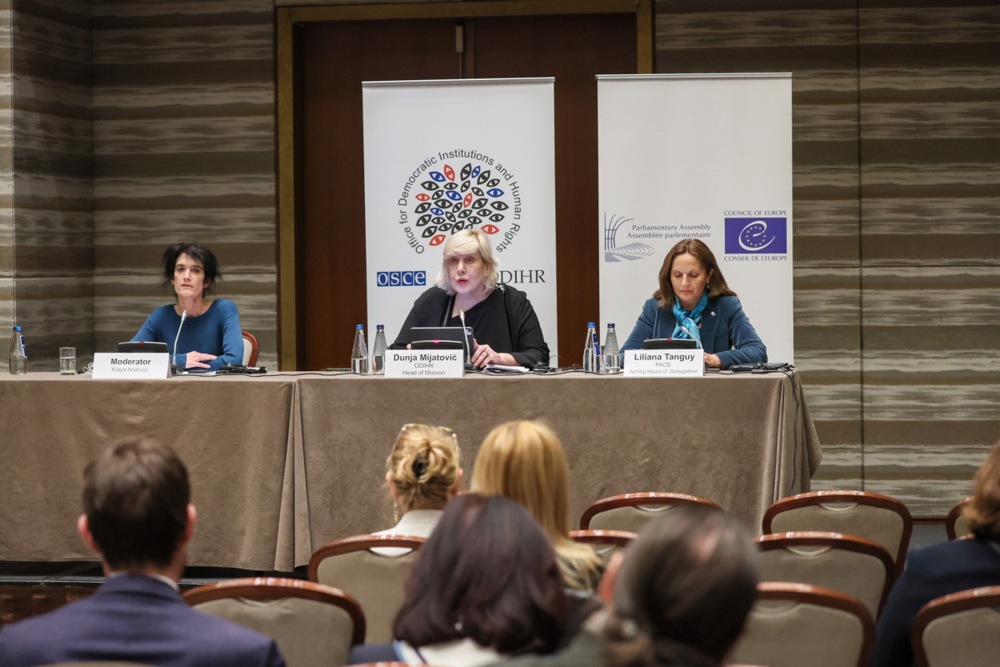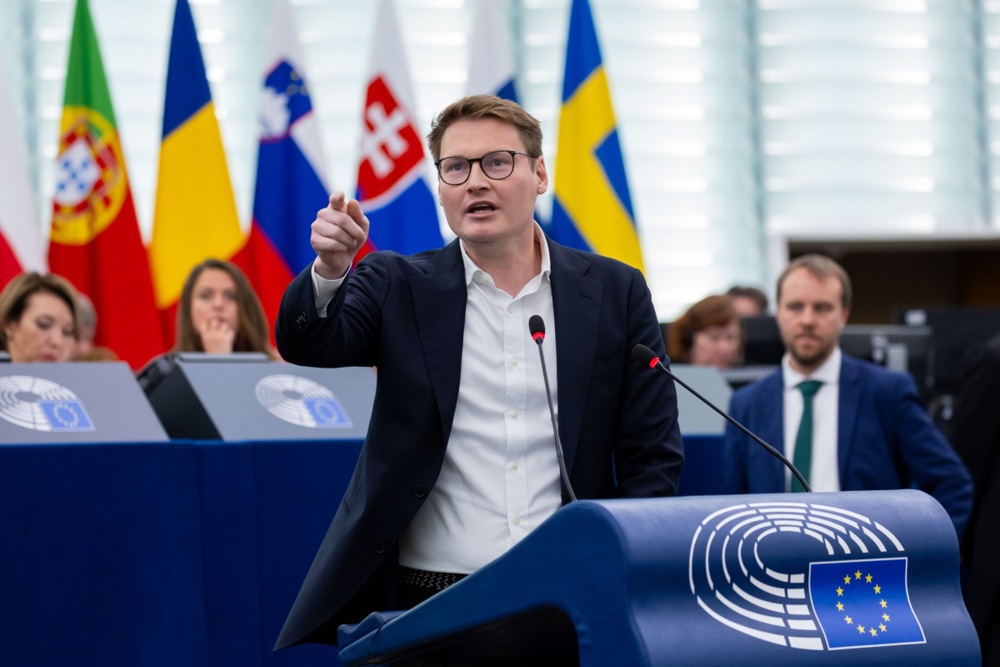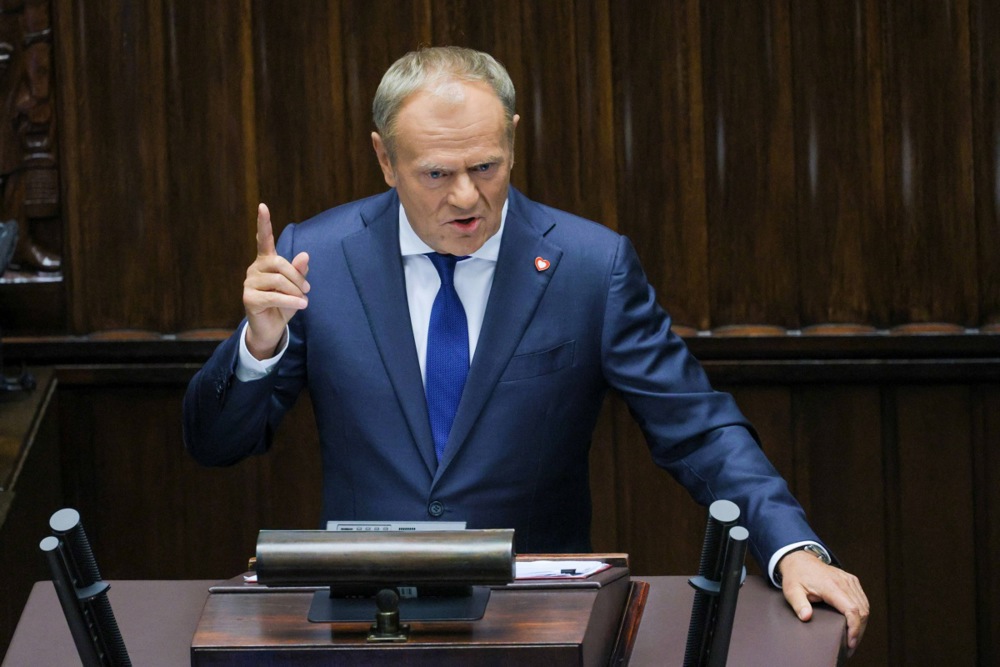The campaign committee of Rafał Trzaskowski, the Polish presidential candidate of the ruling Civic Coalition (KO) party, has petitioned the Polish Supreme Court for a full recount of votes cast in the ballot.
The election was won by on June 1 by the opposition candidate, Karol Nawrocki from the Conservatives (PiS), with 370,000 more votes than Trzaskowski (50.9 per cent to 49.1 per cent) on a turnout of almost 72 per cent.
Poland’s election regulator (PKW) had certified the result and on June 11 held a ceremony of confirming Nawrocki as the victor. That was boycotted by all of the government’s politicians except defence minister and leader of the Polish People’s Party (PSL) Władysław Kosiniak-Kamysz.
On June 16, Trzaskowski’s campaigners filed their demand for a recount, claiming irregularities during vote counting.
According to Cezary Tomczyk, deputy defence minister and one of Trzaskowski’s closest colleagues, the scale of irregularities justified the total recount.
The first reason, Tomczyk claimed, was that there was “a suspicious increase in the number of invalid votes cast at polling stations where Trazskowski had won in the first round — 150 per cent — with only a 45 per cent increase in such invalid ballots cast for Nawrocki … This large difference suggest that foul play may have been involved”.
PKW data showed there were just 189,000 invalid votes in total out of the 21 million ballots cast.
Tomczyk also argued that “in 3,800 polling stations [out of a total of 32,000] the result for Nawrocki was suspiciously high, 36,000 votes over what was to be expected”.
He pointed out that the Supreme Court had already ordered a limited recount of votes in 13 polling stations where there was a suspicion that the votes cast for Trzaskowski had been mistakenly attributed to Nawrocki. “If we know of 13 such cases, who knows how many more there are,” argued Tomczyk.
The recounts so far ordered by the Supreme Court, though, were unlikely to affect the overall result, as fewer than 7,000 ballots were cast across all the affected stations combined.
Tomczyk claimed that if it was assumed that “seven votes in each of the polling stations [32,000 such stations-ed.] were misattributed in this way from Trzaskowski to Nawrocki, the latter’s majority [370,000 -ed.] disappears, adding that the only way to avoid such suspicions was via a recount”.
Trzaskowski’s aide justified his claims arguing that “we are not undermining democracy but trying to save it. All we want is a recount”.
There have been more than 400 protests filed so far with the Supreme Court with the deadline for such petitions passing on June 16. The court then has until July 2 to validate the final result of the election.
After the presidential election in 2020, there were more than 5,000 protests alleging irregularities, none of which led the courts to order any recounts or invalidate results.
If a recount was ordered, it would be carried out under the supervision of district courts that would appoint officers under the administrative jurisdiction of the ministry of justice.
Meanwhile, justice minister Adam Bodnar has cast doubt on the validity of the Supervisory Chamber of the Supreme Court itself, the part of that court that by law must consider the protests and validate the election.
Bodnar cited the current government’s and European courts’ refusal to recognise that court as being legitimately constituted as a result of the contested judicial reforms of the previous PiS administration.
Judges in the Supervisory Chamber of the Supreme Court were appointed through a process that gave politicians significant influence over judicial nominations. That prompted both the Court of Justice of the European Union and the European Court of Human Rights to rule that the chamber did not constitute an independent and impartial court established by law.
Michał Wawrynkiewicz, an MEP from Prime minister Donald Tusk’s KO, on June 14 told government controlled broadcaster TVP Info that he could “envisage a scenario in which the government decides that it will not publish the result of the election because of the issues with the validity of the Supervisory Chamber”.
In such circumstances, he said, the Speaker of Parliament Szymon Hołownia would become head of state on August 6, the date on which the second and final term of the PiS-aligned President Andrzej Duda ends.
The government has recognised the validity of decisions taken by that chamber with regard to the 2023 parliamentary elections, as well as the European parliamentary election and the local government elections in 2024.
A report of the observers mission of the Organisation for Security and Co-operation in Europe (OSCE) of June 3 did not identify any irregularities with regard to the process of counting the votes.
It did state that Trzaskowski, as the government-backed candidate, benefited from favourable coverage in the government controlled public media and that there were question marks over foreign funding of “attack ads” in his favour broadcast during the election campaign.





